He is a theatre actor, director, journalist, politician, environmentalist, activist and an aspiring writer. Having been born to parents who breathe theatre, this gentleman has carved a niche for himself in the world of theatre and movies. His role as ‘George Kutty’ in the Hindi film ‘Airlift’ starring Akshay Kumar earned critical acclaim. He was also seen in the recently released ‘Meri Pyaari Bindu’ starring Ayushmann Khurrana and Parineeti Chopra in which he played Parineeti’s father. His father Nanjundaiah Narayan, popularly known as Make-up Nani, worked as a make-up artiste and actor in Kannada Film Industry while his mother Bhargavi has appeared in many movies and TV soaps. Three of his siblings are also into theatre. Meet the man Prakash Belawadi, who is currently in Mysuru to direct the play ‘Shikari’ for Rangayana. Star of Mysore caught up with the actor at the theatre repertory for an exclusive interview. Excerpts…
SOM: Having directed ‘Gora’ earlier, now you are directing ‘Shikari’ for Rangayana. Share with us your experience.
Prakash Belawadi: In the first place it is a privilege for any director, certainly for someone like me who has come from amateur theatre. It’s a great honour to work with professionally experienced actors. Anywhere in the world it’s a great luxury as they give you time to work with them. And Rangayana has a unique trait. The actors here are exposed to all kinds of styles associated with theatre. Directors like B.V. Karanth and Prasanna are considered to be great and having worked with them and other directors like C. Basavalingaiah, Chidambara Rao Jambe, these actors, who know different styles, are in theatre practise. And, the challenge of getting their approval on a complex idea saying that this is the greatest experiment in my whole life and putting everything what I have learnt throughout my life into work is what makes it interesting. It is a milestone in my life and I am grateful that I have the opportunity to work here.
By S.N. Venkatnag Sobers
SOM: You have been a part of both theatre and movies. What gives you more satisfaction?
Prakash Belawadi: See, I am an accidental actor. I am not saying that I am an accidental movie actor. I was not even a stage actor but a backstage person. I grew up doing a little bit of make-up and lighting before I started directing plays. I have done sound and set design as well. I have sometimes acted because of the non-availability of actors on that particular day or to fill space. Somehow, I drifted into movies in the last five years and it seems to have caught on, making me act in five languages. I do not know how long I will be there but I can tell you this much, it’s ok if I don’t get acting jobs for the rest of my life. But, if you tell me that I will not be able to do a play ever again, I feel my life has no meaning anymore.
SOM: What inspired you to get into theatre?
Prakash Belawadi: I think you need to revisit when you ask a person what inspired them to get into theatre. A lot of people drift into theatre because role playing is what something children do without any training. Role play is inherent to humans. I think the question should be what made you stay in theatre after 40 years. And, the answer is clear. I don’t think in any other medium that I have dabbled in or worked professionally, be it being a journalist, writing, directing and acting for television, films and documentary, in no medium you have as much freedom to express yourself, except theatre.
Conventional cinema does not allow me to play the role of Hamlet, Abraham Lincoln or such characters or put a chair and show this is Vidhana Soudha or make a person stand and say it is a tree. In theatre, you can causally do it and nobody thinks it as an experiment as many have been doing it since decades.
Theatre allows you to construct anything out of an empty space, which no other medium allows. With minimum araphernalia you can create the biggest drama that a human being can think of. And, I think those who experience theatre at the highest level will never quit.
SOM: You have acted in both Kannada and Hindi movie industries. How do you compare them?
Prakash Belawadi: I must tell you that although there is a new crop of young actors and directors now in Kannada who are doing good work there is professionalism in Bollywood that people have to learn. There is respect for individual departments, be it costume, set design, art direction, production design or script which I think is good to inculcate in our (Kannada) film industry. Also, while there are big stars in Bollywood too, the story of the movie is not so badly disoriented in favour of the stars. But, there is respect for alternate cinema in Bollywood which is interesting. It was always there in Malayalam industry and it is increasingly there in Marathi cinema and Bengali cinema. We had it a bit in Kannada cinema and I think the young directors in Kannada will be able to bring such a system.
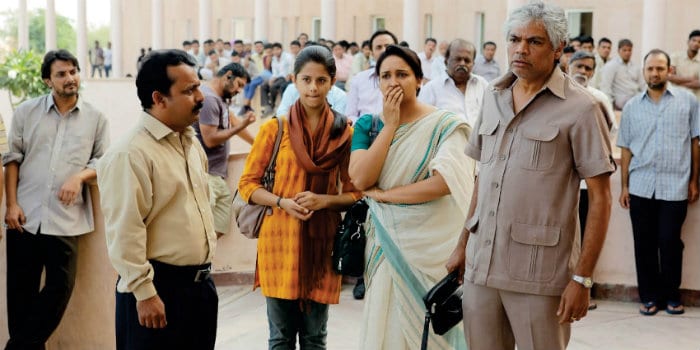
Prakash Belawadi as George Kutty in the Akshay Kumar starrer-Airlift.
SOM: How do you see the growth of theatre having served for more than four decades?
Prakash Belawadi: I don’t think I belong to the intellectual group in the Kannada literary tradition. Intellectuals of Kannada literary tradition have created a template of what is good, what is of literary merit or artistic merit, which I think the new generation in theatre do not subscribe to, which is very healthy.
I have been continuously active in theatre and every year I am involved in 4-5 productions. I have directed three to four plays every year for the past 15-20 years and I can tell you that the new theatre which is there now both in Kannada and English in Bengaluru is of greater variety and depth than what it was before.
I know some of the great plays done by great directors then, but unfortunately, the shadows of very big directors and plays are so lengthy that you can see those who subscribe that system are not able to emerge from that shadow. Lack of subscription to the old tradition has enabled young people to create original new work which you see a lot in English theatre.
Earlier, in 70s and 80s the English theatre was restricted to comedies with someone doing great work. But, usually it was Neil Simons’ comedy. Not that they were bad but it was not from this soil. We did comedies speaking in terrible English accents and everybody correcting everybody’s English. While Kannada theatre used to do good work, sadly now a lot of Kannada theatre has not grown beyond what it was earlier. Whereas English theatre is doing truly great experimental works, writing own scripts and responding to crisis and political ideas. And I think the new Kannada groups that are emerging are beginning to break free from this Kannada literary tradition. In my opinion, literary critics talking about cinema and theatre will be the death of both the genre.
SOM: How easy or difficult is it for people in Bollywood to reach out to you?
Prakash Belawadi: I never put out any of my pictures or share my contact number with anyone. Actually, if somebody wants to connect with me they should either contact me through my agency or close network of people. I am a reclusive kind of a person who doesn’t want to shift to Mumbai because Bengaluru is my home and ground of inspiration. And, I will never leave my city.
SOM: Tell us about your experience with Bollywood actors?
Prakash Belawadi: It is funny that the biggest actors I have seen are broad-minded, large- hearted and generous. It was just an eye-opener to see the humbleness and generosity of Amitabh Bachchan. Actors like Akshay Kumar, John Abraham, Irfan Khan, Farookh Sheik and in fact our own Shivarajkumar have great respect for fellow actors.
SOM: Now coming to politics, you have been a member of Loksatta party and contested BBMP elections as well. What do you have to say about the current political scenario in the State?
Prakash Belawadi: The political scenario in the country should be analysed in three phases. I am a political person and will be ready with an answer. I don’t think I am a political material. I will be bad as a representative of the people and most importantly, I don’t think I can find a constituency which can elect me.
But, like I said earlier, we should see the political scenario in three phases, the first was just before and after the Independence. We had to consolidate the idea of a Union among the 300 plus provinces and to create that with so much diversity and so many conflicting histories, it was a very important task.
I think the first generation of leaders tried to consolidate the idea of a Union. They were accommodative in spirit and they allowed a mess for a democracy to happen. So we didn’t get the efficiency and effective system as we had to respect religions, conflicts, identities and others which resulted in a kind of economic system. This had the idea of trickle down economy that was weak and led to the Licence Raj and the bureaucracy grew too thick and heavy and we suffered in that phase.
Now we have entered the third phase where we have moved rapidly since 1991 from semi pudaari-led feudal system to a sudden capitalism which has no graces of the feudal spirit. In feudal system, for instance, nobody would have abandoned a village. People actually stayed in the villages, suffered through the bad phases because they treated the village as their home even with the economic and social disparities and the terrible caste system.
The feudal system held responsibility to the land and community. But, capitalism actually pitches tents and if it works they stay or else shift somewhere else. In this phase, I think it is important to make the average thinking Indians, especially the youngsters, to really open their eyes to what makes the system and the hidden dark underbellies of cities, the hidden systems of patron-client relationships and how money comes into political system and devolves into the community. I think they should be made aware about where the food they eat or the clothes they wear are coming from. We are completely blind to such issues regarding the communities involved in making clothes for us or growing food, getting access to education, health other benefits.

Prakash Belawadi at a script reading session with Rangayana artistes in city.
SOM: What is your opinion on demonetisation and recently launched GST?
Prakash Belawadi: You know I am a Narendra Modi fan but not a BJP supporter. I don’t like big national parties and big governments. I don’t know whether the demonetisation is good or bad. There are people who say it is good and bad as well. I don’t trust economists as they can take anybody’s side. Economists are not scientists. Scientists have to be responsible for what they claim. But economists are not like that. You can be the world’s best economist and yours can be the poorest State. What I am saying is you have a government that looks to experiment with big change.
I will continue to be supportive till I see a really terrible intent behind it or terribly nasty impact that happens on the ground. All the claims of terrible have happened in the ground, I don’t care, because like me a lot people don’t care. With respect to demonetisation, I will still wait. But, with GST, I am conflicted. I think the idea of GST is good as there is a need to create common market, otherwise people will not get access to all of the union. Only rich, powerful people who are part of this unholy nexus of capitalism with dirty politics seem to be making way. I think you need to have a common market and give opportunities to all entrepreneurs. But, having said that it should come with safeguards. The autonomy of State is to be safeguarded. According to me, what is happening with the system is it has totalitarian mindset, which even Modi has and it is his dangerous side because he has centralised, totalitarian attitude which is dangerous in Union of such diversity.
I think we need to balance between the good that can come from GST with increased autonomy for the States and how they shape their future and destiny. There is a need for an intelligent debate. Unfortunately, our politics is dumb and our media is even dumber. Which is why the responsibility of youngsters is even more.
SOM: You have also been associated with social campaigns, the most recent being the steel bridge project in Bengaluru. Where do you think we went wrong that today people are forced to launch such campaigns?
Prakash Belawadi: When economic boom began in 1991, suddenly the middle-class people, who couldn’t afford a scooter, were buying more than one car. Overnight everybody began to earn high salaries. If I have to say, the first salary that a son/daughter got was the last salary the parent got. That was the level of economic boom. A time has come where the Government should consult people before taking up projects. Be it constructing a road or a park. We have spoiled and polluted the system. We must realise that it is not just the politicians who are corrupting the system. Actually, politicians are the least corrupt in our system. The most corrupt are bureaucrats. After them comes the common man and later the politicians. Politicians are accountable as they seek re-election once in 5 years and they are put to test. None of us are questioned for doing things according to our whims and fancies.
SOM: Tell us about your future projects?
Prakash Belawadi: Right now I am 56-years-old. I don’t know how long my movie career will last. I will continue to do theatre but I cannot do four plays like I used to do earlier. May be I will cut it down to one play a year. One more thing I want to do is to save time from my regular activity to become a writer not a litterateur; only a writer by not being a part of the Kannada Literary System. Writing gives me an opportunity to express myself about many things which are bothering me. With respect to acting, I will continue to act and again it depends on the character I am offered. It need not be an important role but it should be a serious film. Lastly, I want my children to connect somehow to the earth by learning to grow things ourselves. I want to buy a small piece of land and practise agriculture to get connected with the earth.



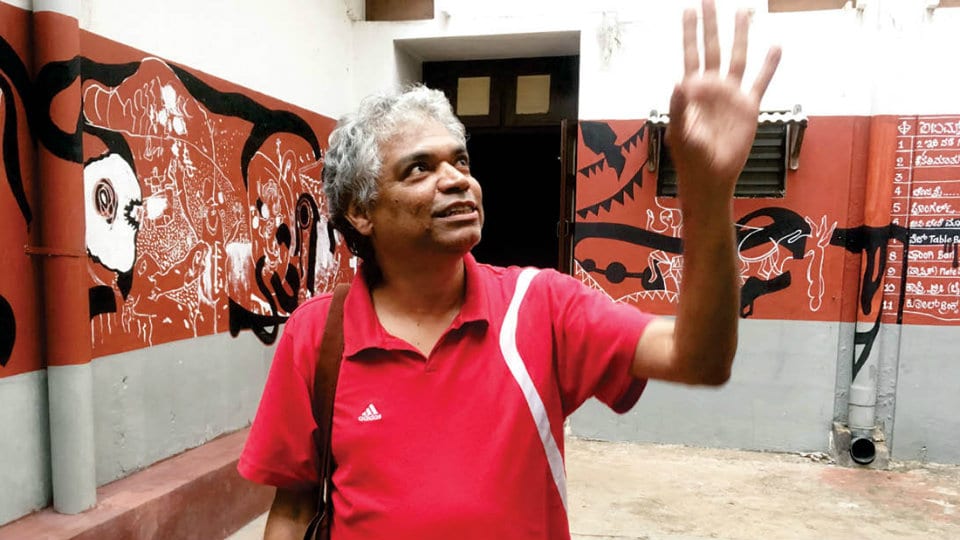
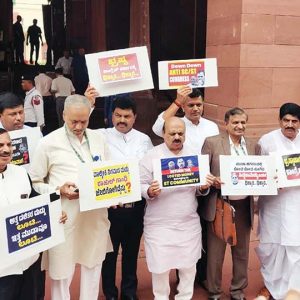
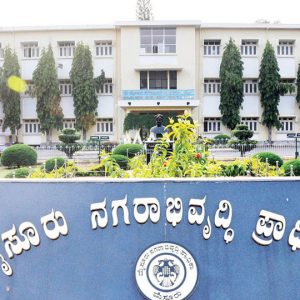
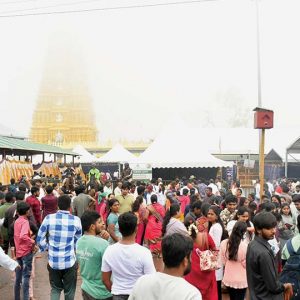
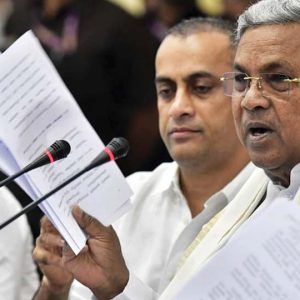
Recent Comments